3 Comments
The IGA Board of Directors is pleased to announce two excellent new Regional Directors and a fantastic new Country Representative. We thank them for their commitment to IGA and the work we do.
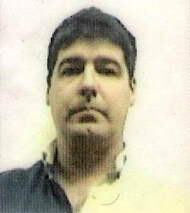 We are sorry to inform you that Alejandro Salvador Cáceres, IGA’s Country Representative in Venezuela, has passed away. Alejandro struggled for several years with colon cancer, which he fought tirelessly. He moved to Spain to receive better medical treatment. In September, we received the news of his death. His passing fills us all with sadness. Alejandro supported IGA’s work as our Venezuela country representative despite his illness. Fortunately, we have his last presentation recorded. We wish to thank him and his family for his years of service. The goat culture of South America has lost a great professional.
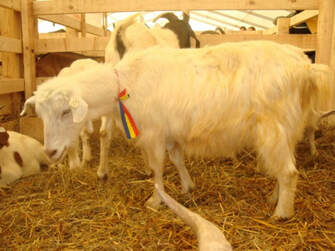 Special thanks to Dr. Stela Zamfirescu, Country Representative for Romania, for sending in this report. 1) Introduction In Romania, goat breeding represents an essential branch of zootechnics and has an old tradition and considerable economic importance. Goat breeding is also an activity with a long tradition of providing milk, meat, and processed products to the population. A third of the country's employed population works in agriculture, which situates Romania well above the 5.9% average of the EU countries. All these elements place Romania among the nations with high agricultural potential (above 30%). In 2019, Romania was third in terms of small ruminants. Currently, the goat sector counts over 2,045,000 heads, of which 1,320,000 are breeding goats, and 200,000 are mated juveniles, which led to an increase of the total number by 5.4% compared to 2018. Goat breeding belongs entirely to the private sector. The animals are reared in rural areas because there are favorable conditions for their breeding. They are also raised because of the higher demand from consumers. Of the total number, 83% of goat farms have up to 10 goats, and they also represent most of the total number, of over 37%. The strong points of goat breeding in Romania are determined by:
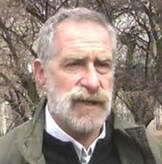 Country Representative for Argentina Patricio has worked in research, development, training of producers, and training students in goat production for 40 years in ecologically sustainable, economically profitable, and socially acceptable models using a participatory research and experimentation approach encompassing competitive design, sustainability, and equity. He graduated as a Veterinarian in Argentina, trained in the production of small ruminants in arid zones at the Ben-Gurion University of the Negev, Israel, where he was responsible for a sheep and goat production development project involving Bedouin tribes. He completed his graduate studies as a Specialist in Animal Production. Patricio obtained a Master’s of Science degree in Animal Production and a Doctorate in Veterinary Medicine degree in Spain. He was part of the formulation team of the National Law for Goat Development of Argentina and responsible for the drafting of the Meat Sector of the National Goat Program. Patricio is a Principal Investigator of the National Institute of Agricultural Technology and a Professor of the Goat Production and Chair of both the National University of La Pampa and the Juan Agustín Maza University. Finally, Patricio is a husband, father, and grandfather. Want to learn more about our other Country Representatives? Click here. Country Representative for Malta
Darryl graduated with a Diploma in Agriculture from the University of Malta. He obtained a Bachelor of Science Degree in Mediterranean Agro-Ecosystems Management from the same institution and collaborated with the University of Perugia in Italy. Darryl has been in the livestock industry for over ten years. His primary research focuses on the characterization of the indigenous Maltese goat population. His other research interests include the conservation of the endangered indigenous livestock breeds of the Maltese islands, livestock production, animal behavior, and livestock handling. Darryl works as a Principal Agricultural Officer at the Agriculture Centre and Innovation Hub for Malta’s Government. Here he manages herds of indigenous cattle, goats, sheep, and poultry. Part of his responsibility is to oversee the conservation of these indigenous livestock breeds. Darryl is also a part-time lecturer at the MCAST Institute for Agribusiness, teaching livestock production and management expertise in small ruminants. He is the founder and administrator of a voluntary organization named Breeds of Origin Conservancy. This organization was established in 2016, recognizing that conservation of the endemic flora and fauna, indigenous breeds; native species and subspecies; and cultivated varieties of trees and plants is vital to preserving the Maltese biodiversity for economic, social, educational, and cultural purposes. Today, these indigenous breeds, endemic species and subspecies, and cultivated varieties of trees and plants are increasingly threatened through commercial agriculture and consumption habits. Darryl is also a national judge for sheep and goats during Malta’s annual agricultural show, called Imnarja. Want to learn more about our other Country Representatives? Click here. The end of any year is a good time for reflection and assessment, but this has been a year like no other. We have all been touched by the COVID-19 pandemic, and many of us have lost family, friends, and colleagues. As more people worked from home and faced recurring travel restrictions, IGA members, and Board endeavored to provide more online content and opportunities. The feedback so far has been enthusiastic, with requests for more content in more languages, and we agree! Check the website or social media for updates. And please share any new content from your institution or country! Thank you.
The International Goat Association typically holds the International Goat Conference every four years, but COVID required that we postpone it. The new dates are October 3-8, 2021, and it will still be in Eger, Hungary, but check the IGA website for updates. Here is the ICG Conference website: www.icg2020.org. The IGA Board of Directors held two virtual meetings this year, on March 24 and October 2, plus a Strategic Planning meeting on December 7. I give special thanks to all of the Board members who have agreed to extend their terms an additional year due to COVID and who also participated in our online and Zoom discussions with great enthusiasm and insight. The new IGA Strategic Plan will be posted on the website once finalized, and it will guide us through the changing world we will find in 2021 and onwards. I want to commend the Strategic Planning Committee, chaired by Davinia Sánchez, and committee members Jean-Marie Luginbuhl, Dilip Bhandari, and Paula Menzies for guiding this crucial process for IGA to increase activity, visibility, and impact. 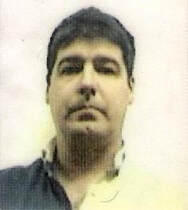 IGA Country Representative for Venezuela Alejandro Salvador lives in Maracay, Venezuela. He received his Master’s Degree in Animal Production in 2000 from the Faculty of Veterinary Sciences of the Central University of Venezuela. In 2013, he received a Doctorate in Agricultural Sciences from the Faculty of Agronomy of the Central University of Venezuela. He has participated as an exhibitor in more than 80 conferences, congresses, and courses. Alejandro is the author and co-author of 22 articles in peer-reviewed and indexed journals and three book chapters. He has also participated in numerous publications and TV shows of an informative nature. Currently, he serves as Professor of Animal Production, teaching Ruminant Production and Sheep and Goats Production at the Faculty of Veterinary Sciences, where he has worked for more than 25 years. He also works as a consultant advising different farms in Venezuela. Alejandro participates as a Member of the Technical Board of ASOCABRA (Association of Dairy Goat Breeders of Venezuela), and manager and founding member of CAVIDOC (Venezuelan Chamber of the Goat and Sheep Industry). Alejandro participated in the IGA International Conference on Goats in 2008 in Queretaro, Mexico, and in 2012 during the conference in Las Palmas de Gran Canaria. Want to learn more about our other Country Representatives? Click here. 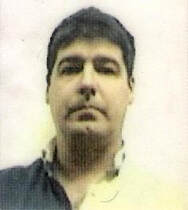 Representante de IGA en Venezuela Alejandro Salvador vive en Maracay, Venezuela, recibió su Maestría en Producción Animal mención Sistemas de Producción Animal en el año 2000 en la Facultad de Ciencias Veterinarias de la Universidad Central de Venezuela, y el Doctorado en Ciencias Agrícolas en el año 2013 en la Facultad de Agronomía de la Universidad Central de Venezuela. Ha participado como expositor en más de 80 conferencias en Congresos, Cursos y Jornadas. Autor y Coautor de 22 artículos en revistas arbitradas e indexadas, además de tres capítulos de libros. También ha participado en numerosas publicaciones y programas de TV de índole divulgativo. Actualmente, se desempeña como Profesor Titular de la Catedra de Producción Animal, donde imparte las asignaturas Producción de Rumiantes y Producción de Ovinos y Caprinos de la Facultad de Ciencias Veterinarias por más de 25 años. También se desempeña en el ejercicio privado de la profesión asesorando diferentes apriscos en Venezuela. Participa como Miembro de la Mesa Técnica de ASOCABRA (Asociación de Criadores de Cabras Lecheras de Venezuela), y directivo y miembro fundador de CAVIDOC (Cámara Venezolana de la Industria Ovino Caprina en Venezuela). Ha participado en IGA desde 2008 en el Congreso en Queretaro, Mexico, y posteriormente en el Congreso de Gran Canarias, España en 2012. ¿Quiere obtener más información sobre nuestros otros representantes de países? Haga clic aquí. 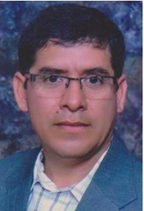 IGA Country Representative for Ecuador Manuel received his Doctorate in Veterinary Medicine and Animal Science from the National University of Loja, Ecuador. He also obtained a Doctorate in Veterinary Sciences - Animal Genetics at the Institute of Animal Science, Cuba. Currently, Manuel is a professor of Goat Production (Caprinocultura) and Animal Genetics at the State University of Bolívar, Ecuador. His focus is on goat milk production and animal behavior. Manuel is an academic advisor for Master’s and undergraduate theses focused on studying environmental and genetic factors that affect a goat’s lactation curve. Want to learn more about our other Country Representatives? Click here. |
IGA Blog
The International Goat Association promotes goat research and development for the benefit of humankind, to alleviate poverty, to promote prosperity and to improve the quality of life. Archives
May 2024
Categories
All
|
|
International Goat Association
2516 Millbrook Rd., Little Rock, AR72227 USA email: [email protected] -454-1641 |
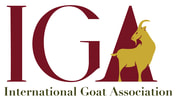
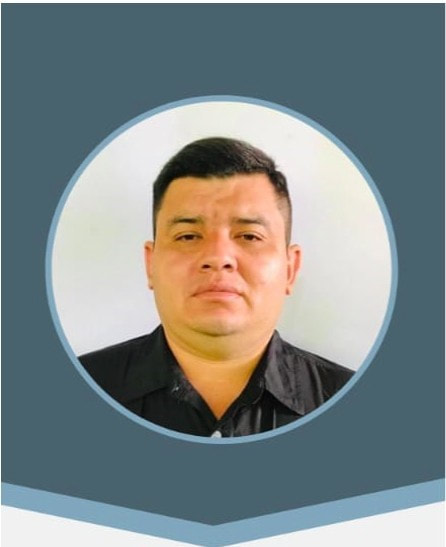
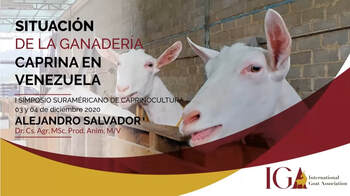
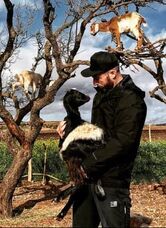
 RSS Feed
RSS Feed